The Farmer's Daughter

Brief Synopsis
Cast & Crew
H. C. Potter
Loretta Young
Joseph Cotten
Ethel Barrymore
Charles Bickford
Rose Hobart
Film Details
Technical Specs

Synopsis
Swedish-American Katrin Holstrom bids farewell to her Midwestern farm family and heads for Capital City, where she plans to pursue a career in nursing. While waiting for the bus, she is picked up by barn painter Adolph, who tries to force her to spend the night in an auto court by pretending his jeep is broken. When Katie shows Adolph just how well the jeep is running, he becomes flustered and backs into a car. The trusting Katie advances Adolph the necessary repair money and is dumbstruck when she discovers the next morning that he has left her nearly penniless at the auto court. Katie eventually makes her way to Capital City, but instead of reporting to nursing school, she takes a temporary job as a maid to rebuild her savings. Although her employers--Glenn Morley, a young Congressman and son of a former U.S. Senator, and his kind but worldly mother Agatha--are impressed by her openness, Katie's supervisor, the crusty Joseph Clancy, warns her not to talk politics while serving. During a political party celebrating the victory of Glenn's fellow Congressman, Wilbur Johnson, however, Katie ignores Clancy's advice and reveals her hostile feelings about Johnson. Later, Glenn, who is attracted to Katie, asks her why she dislikes Johnson, and she tells him that she believes in the right to a minimum wage, legislation that Johnson opposes. Although Glenn is romantically connected to Virginia Thatcher, a political reporter, he and Katie grow close over the next few weeks. Later, when Katie announces that she is leaving for nursing school, Glenn, who is headed for Europe, implores her to stay. She agrees to remain until he returns from Europe, and he suggests that during his absence, she take some night classes. Soon Katie is studying economics and politics and is helped by Clancy and Agatha. Glenn's homecoming coincides with Johnson's sudden death, and Katie finds herself at odds with Glenn's party's choice for his replacement--Anders J. Finley. During a rally for Finley, Katie stands up and begins questioning his dubious voting record. Her protests stir up the partisan crowd, and reports about her behavior attract the attention of the opposition party. To Katie's surprise, the opposition party leader invites her to run against Finley, and even though Agatha swears to fight her, Katie accepts. Although saddened by Katie's disaffection, Glenn helps her to improve her oratorical skills and wishes her well in the race. As the election nears, Finley's lead over Katie grows narrower and narrower. Then, just two days before the election, Adolph approaches Agatha and Finley and infers that, during their trip to Capital City, he and Katie slept together. Although Agatha at first orders Finley not to repeat Adolph's story, she finally agrees with her cronies that using Adolph's lie is the only way to win. Glenn, however, announces he will quit the party if Adolph's story is printed, and when it does appear the next day, he drives to the Holstrom farm, where Katie has gone. Katie accepts Glenn's proposal, but is admonished by her father not to quit the race, but to fight for the truth. Moved by Mr. Holstrom's words, Katie and Glenn return to Capital City and are joined by a repentant Agatha, who gets Finley drunk enough to admit that he is a white supremacist. Finley also tells Agatha that he paid Adolph to lie about Katie and reveals where his fascist cohorts are hiding him. Katie and Glenn track Adolph to a remote lake and, after a fierce fight with Finley's men, are able to force Adolph to issue a public retraction. Katie then wins the election by a landslide and is carried by Glenn over the threshold at the House of Representatives.

Director

H. C. Potter
Cast

Loretta Young

Joseph Cotten

Ethel Barrymore

Charles Bickford

Rose Hobart

Rhys Williams
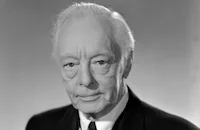
Harry Davenport

Tom Powers
William Harrigan

Keith Andes
Harry Shannon

Lex Barker
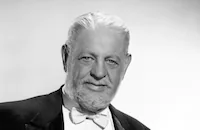
Thurston Hall
Art Baker
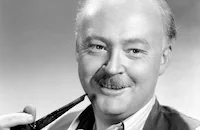
Don Beddoe
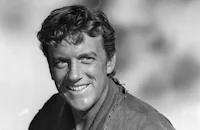
James Aurness
Anna Q. Nilsson

John Gallaudet

William B. Davidson
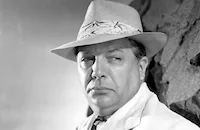
Cy Kendall
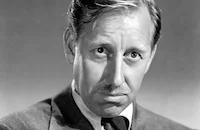
Frank Ferguson
William Bakewell

Charles Lane
Vic Potel
Jessie Arnold
Drew Miller
Eleanor Vogel
Sven Hugo Borg
Bill Caldwell
Mary Newton
John Landon
Ben Erway
Douglas Evans
Carl Hansen
Harry Denny
Elsa Peterson
Beth Belden
Lee Kass
Robert Strong
Albert Cavens
Mike Lally
Eddie Arden

Charles Mcgraw
Joe Gilbert
Carl Kent
Tony Barrett
Robert Clarke
Janet Burston
Jerome Franks Jr.
Jim Pierce
Dick Rush
Michael Chapin
William Bailey
Hazel Keener

Bess Flowers
Florence Wix
Dorothy Curtis
Art Howard
Larry Steers
Major Sam Harris
Jack Gargan
Mel Wixon
Brandon Beach
James Conaty
Stuart Holmes
Crew
C. Bakaleinikoff
James Casey
Russell A. Cully
Albert S. D'agostino
Gil Grau
Feild Gray
Leigh Harline
Edith Head
Laura Kerr
Milton Krasner
Harry Marker
Harley Miller
Harold Palmer
Edgar Peterson
Clem Portman
Allen Rivkin
Francis M. Sarver
Dore Schary
Darrell Silvera

Photo Collections
Videos
Movie Clip





Trailer
Promo
Film Details
Technical Specs

Award Wins
Best Actress
Award Nominations
Best Actor
Best Supporting Actor
Articles
The Farmer's Daughter
Based on a Finnish play called Hulda, Daughter of Parliament, The Farmer's Daughter is the story of Katie Holstrom, a Swedish-American country girl who moves to the big city. Circumstances force Katie to work as a maid for a Congressman and his mother, and she ends up running for Congress herself, teaching the politicos something about principles. Movie mogul David O. Selznick acquired the property specifically for his contract star Ingrid Bergman, and put Dore Schary in charge of producing it. But Bergman was not interested, and the search began for another star. Selznick wanted another of his contract players, possibly Dorothy McGuire. Schary disagreed. Selznick suggested Sonja Henie, a Norwegian. Schary disagreed even more vehemently and suggested Loretta Young instead, to which Selznick finally agreed.
Young, however, wasn't so sure the film was right for her. She liked the script and the role, but she was nervous about attempting the accent. Schary agreed that the part was a gamble for her, different from her usual glamorous roles. But he was not only convinced that she was right for The Farmer's Daughter, he thought she could win an Oscar for it. Young agreed to do the film, but suggested that instead of a Swedish accent, she could do a Southern one. Schary said that the Swedish background was essential for the character, and that he would get her a coach.
Schary's choice of coach was inspired: Ruth Roberts had Swedish ancestors, and had taught English to Swedish immigrants in Minnesota. When Ingrid Bergman had come to Hollywood from Sweden, Selznick had hired Roberts, the sister of director George Seaton, to help Bergman lose her accent. "We always said Ruth took away Ingrid's accent and gave it to me," Young later recalled. With Roberts' help, Young's accent was perfect.
The star who left everyone in awe, however, was the legendary Ethel Barrymore, who played Joseph Cotten's mother. The grande dame of the theater charmed everyone by talking sports with stagehands, and performing vaudeville turns with Cotten. And when Young returned to work after suffering a miscarriage, Barrymore played nurse, sitting guard outside Young's dressing room (with a portable radio so she could listen to baseball games) to make sure Loretta wasn't disturbed while resting.
The reviews for The Farmer's Daughter, and for Young's performance, were among the best she had ever received. At Academy Awards time, Young was nominated as Best Actress, and Charles Bickford, who had played the family butler, was nominated as Best Supporting Actor. The competition for best actress was stiff: Joan Crawford, Susan Hayward, Dorothy McGuire, and Rosalind Russell, one of Young's best friends. Russell was nominated for a rare dramatic performance, in Eugene O'Neill's somber drama, Mourning Becomes Electra (1947). Russell had already won a Golden Globe for her performance, and oddsmakers considered her a shoo-in for the Oscar. Young was thrilled to be nominated, but told her family and friends not to bother to attend - she didn't have a chance. Russell was already half out of her seat as the winner was about to be announced, when Young's name was called. Good sport Roz remained standing and began applauding, turning her gaffe into a standing ovation for her pal. An overwhelmed Loretta Young gazed lovingly at her statuette, and cooed "At long last!"
Director: H.C. Potter
Producer: Dore Schary
Screenplay: Allen Rivkin, Laura Kerr, from the play by Hella Wuolijoki (as Juhani Tervapaa)
Cinematography: Milton Krasner
Editor: Harry Marker
Costume Design: Edith Head
Art Direction: Albert S. D'Agostino, Feild Gray; set decoration, Harley Miller, Darrell Silvera
Music: Leigh Harline
Principal Cast: Loretta Young (Katrin Holstrom), Joseph Cotten (Glenn Morley), Ethel Barrymore (Agatha Morley), Charles Bickford (Joseph Clancy), Rose Hobart (Virginia Thatcher), Lex Barker (Olaf Holstrom), Keith Andes (Sven Holstrom), James Aurness [Arness] (Peter Holstrom).
BW-98m. Closed captioning.
by Margarita Landazuri

The Farmer's Daughter
Keith Andes (1920-2005)
Born John Charles Andes on July 12, 1920, in Ocean City, New Jersey, Keith been began performing in his teens for school productions and for local radio stations in his hometown. After he graduated with a B.A. in education from Temple University in 1943, he pursued a stage career in earnest, and in 1947 scored a triumph in the Broadway musical The Chocolate Soldier, where he won a Theatre World Award for his performance. That same year, he made his film debut as one of Loretta Young's brothers in The Farmer's Daughter (1947). Although his film career never quite took off, one could certainly envy him for playing opposite two of the hottest blonde bombshells of their generation: first with Marilyn Monroe Clash by Night (1952); and then Jayne Mansfield in The Girl Most Likely (1957).
If Andes lacked the star power to be a consistent Hollywood lead, he certainly had no problems with television. Here, his stalwart presence and commanding baritone made him more than servicable for television through three decades: (Goodyear Theatre, Playhouse 90, The Ford Television Theatre); '60s: (Perry Mason, The Rifleman, Star Trek, The Outer Limits, Glynis); and '70s (Cannon, The Streets of San Francisco).
Andes made his last notable screen appearance in the Al Pacino vehicle And Justice For All (1979), before falling into semi-retirement and doing occassional voice work. He is survived by two sons, Mark, Matt; and three grandchildren.
by Michael T. Toole
Keith Andes (1920-2005)
Quotes
Trivia
Notes
The working title of this film was Katie for Congress. Actors James Arness (who appeared as James Aurness) and Keith Andes made their screen debuts in the picture. Contemporary news items provide the following information about the production: Producer David O. Selznick bought the rights to the play Juhni Tervataa written by Finnish playwright Juhani Tervapää (spelled onscreen as Juhni Tervataa) in 1944 and intended it as a vehicle for contract star Ingrid Bergman. When Bergman and Selznick's professional relationship ended in late 1945, however, the title role became open. (Modern sources note that when Bergman dropped out, Selznick struck a deal with RKO that included the rights to the play, the Americanized screenplay, and the services of his contractee, Joseph Cotten, as well as producer Dore Schary, who had not yet been named RKO production chief, in exchange for partial ownership of the property. Modern sources also note that Paramount initially bought the rights to the play in 1937). Some scenes for the film were shot in Petaluma, north of San Francisco, and other Bay Area locations. Four hundred and fifty extras were called for the political rally scene at the Ebell Theatre in Los Angeles. In addition, some filming was done at the M-G-M studios.
Production was delayed for a week in late July 1946 when Loretta Young was hospitalized with the flu. Although RKO wanted the picture to be completed in time for the November 1946 Congressional elections, it wasn't released until March 1947. Once the "political" deadline had passed, RKO changed the film's title to The Farmer's Daughter. Hollywood Reporter announced that a Swedish folk song, "High Mountains and Deep Valleys," was to be used in the film, but no song was heard in the viewed print. Loretta Young won an Academy Award for Best Actress for her performance in the picture. Charles Bickford, who returned to the screen after a two-year absence, was nominated as Best Supporting Actor. Joseph Cotten and Loretta Young reprised their roles in two different Lux Radio Theatre broadcasts, on January 5, 1948 and January 15, 1951. Tervapää's play was first adapted to film in 1937 in a Finnish production directed by Valentin Vaala and starring Irma Seikkula and Tauno Palo. On January 14, 1962, a televised version of Tervapää's play, starring Lee Remick and Peter Lawford and directed by Fielder Cook, was broadcast on NBC's Theater '62'. Bickford revived his role as "Clancy" for that program. Young revived her role for an episode of her NBC anthology program The Loretta Young Theater, which was broadcast between August 1954 and September 1961. Between 1963 and 1966, ABC broadcast The Farmer's Daughter, a television series starring Inger Stevens and William Windom that was also loosely based on Tervapää's play.
















